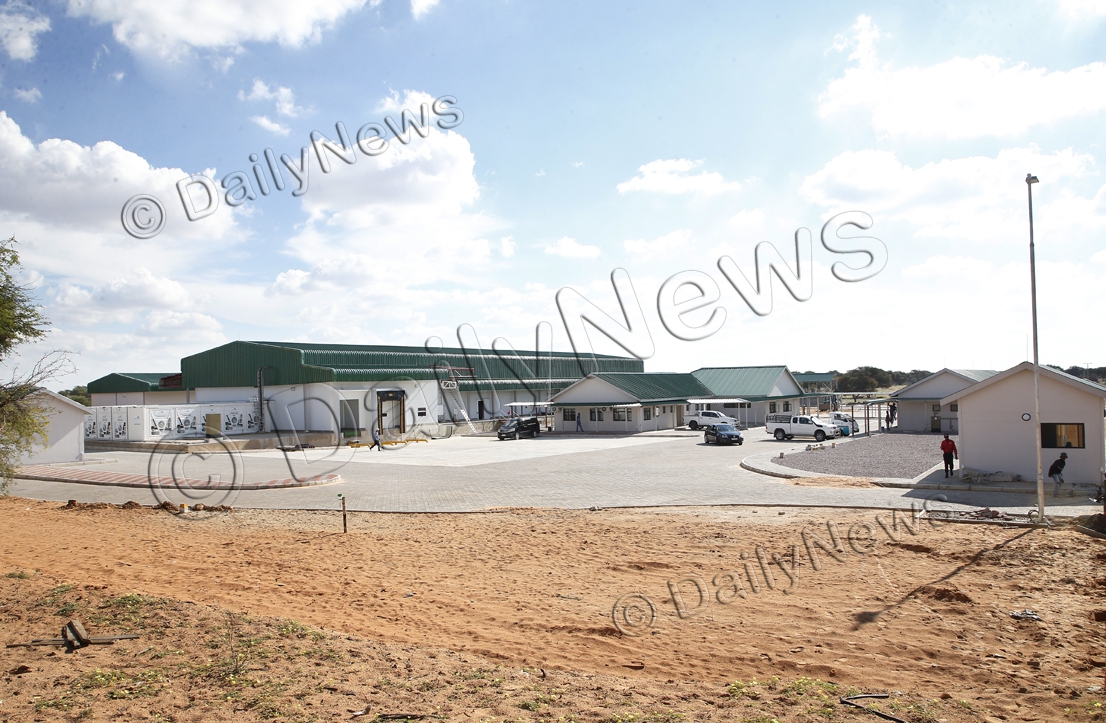Tsabong abattoir strategic business unit
15 Apr 2024
The globally renowned and accredited Botswana Meat Commission (BMC) which wields experience in running abattoirs since 1965, is set to operate the Tsabong Multispecies Abattoir as a strategic business unit.
A parastatal, wholly owned by Botswana government, which currently owns and operates three abattoirs in Lobatse slaughtering 650 cattle per day, Maun, which slaughters 120 cattle per day and Francistown with a capacity of slaughtering 350 cattle per day, is now readying to run the newly constructed Tsabong Multispecies Abattoir, which is expected to slaughter 60 livestock or 300 small stock per day.
Speaking in an interview, BMC chief technical officer, Oabona Ramotshwara said BMC long-term vision was to operate the multimillion pula Tsabong abattoir as a strategic business unit.
“To effectively unlock the real value potential of the abattoir, focus will be placed on market requirements for products,” he said.
He underscored that BMC had mapped out a business strategy where it outlined its plans to establish Tsabong abattoir. It cost government P161 million to construct a leading small stock meat processing and packing plant in Botswana.
This, he said, would enable BMC to take advantage of the increasing demand for small stock products locally.
He highlighted that opportunities for expansion into the export market were available, adding that appropriate business platforms to capitalise on such opportunities would be established.
Mr Ramotshwara said BMC shall replicate the current cattle procurement methods used and maintain the current cattle prices of P31 per kg, as well as free transport to the abbartoir.
As for small stock, he said the purchase price would be determined by the market segments, dynamics and other protocols or processes.
As for employment, he said, the new national assert shall operate with a staff complement of 85 including the management team, adding that the majority of them shall come from Tsabong District.
He buttressed that the abattoir was endowed with the state-of- the-art automated system, where the processing plant would produce goat or lamp chops, chilled goat or sheep carcasses, deboned beef primal cuts, bone-in or deboned forequarter cuts, offal products, hoofs, and heads.
He said the plant would also produce bone meal, carcass meal, blood meal and tallow, adding that hides and skins would create further value chain opportunities for leather processing and resultant leather products manufacturing in the Tsabong District.
For the financial projections, he said the abattoir would need P93.7 million in its first year of operation to cover start up and annual running costs such as livestock procurement, staff salaries, electricity, fuel and water.
He estimated that the abattoir would return a revenue of around P44.5 million in its first year of operation.
BMC projections reflect initial annual loss of P48.5 million, expected to be covered through government subvention funds.
Mr Ramotshwara said in its early days, the abattoir would primarily supply Botswana market and thereafter expand to export markets once all conditions for export had been fulfilled including sanitary and phytosanitary standards protocols.
Eyed markets are SADC, United Arab Emirates or Middle East and North Africa (MENA), European Union (EU) and Norway.
He said the Botswana market would comprise butcheries, wholesalers and retail stores.
Additionally, it will supply government institutions such as schools, hospitals, the military and others as well as the hospitality industry businesses such as hotels, lodges and restaurants.
Furthermore, some products from the abattoir will be sold to the BMC cannery to produce various BMC ECCO canned products.
For his part, a cattle farmer at Makopong, Edwin Babeile, a BMC regular buyer, called for improved procurement processes between farmers and the BMC, especially the observance of turnaround time.
He said in the past BMC used to take three days to pay farmers but nowadays it took about two weeks to pay farmers, which he opined, escalated production costs.
Babeile partly blames the delays on technology in the financial sector.
He called on BMC to revise its prices and set the standard, adding that the buying prices were currently low and farmers did not make much to insufficiently develop their farms and improve their produce.
He said government was all out to increase the national herd, therefore it was critical for BMC to revisit its processes, thrash them out for the benefit of a farmer for government to achieve its target.
Babeile expressed hope that eventhough BMC would be running Tsabong Multispecies Abattoir, the new project should be run independently so that it does not inherit the liabilities of the parent company. ENDS
Source : BOPA
Author : Calviniah Kgautlhe
Location : TSABONG
Event : INTERVIEW
Date : 15 Apr 2024






